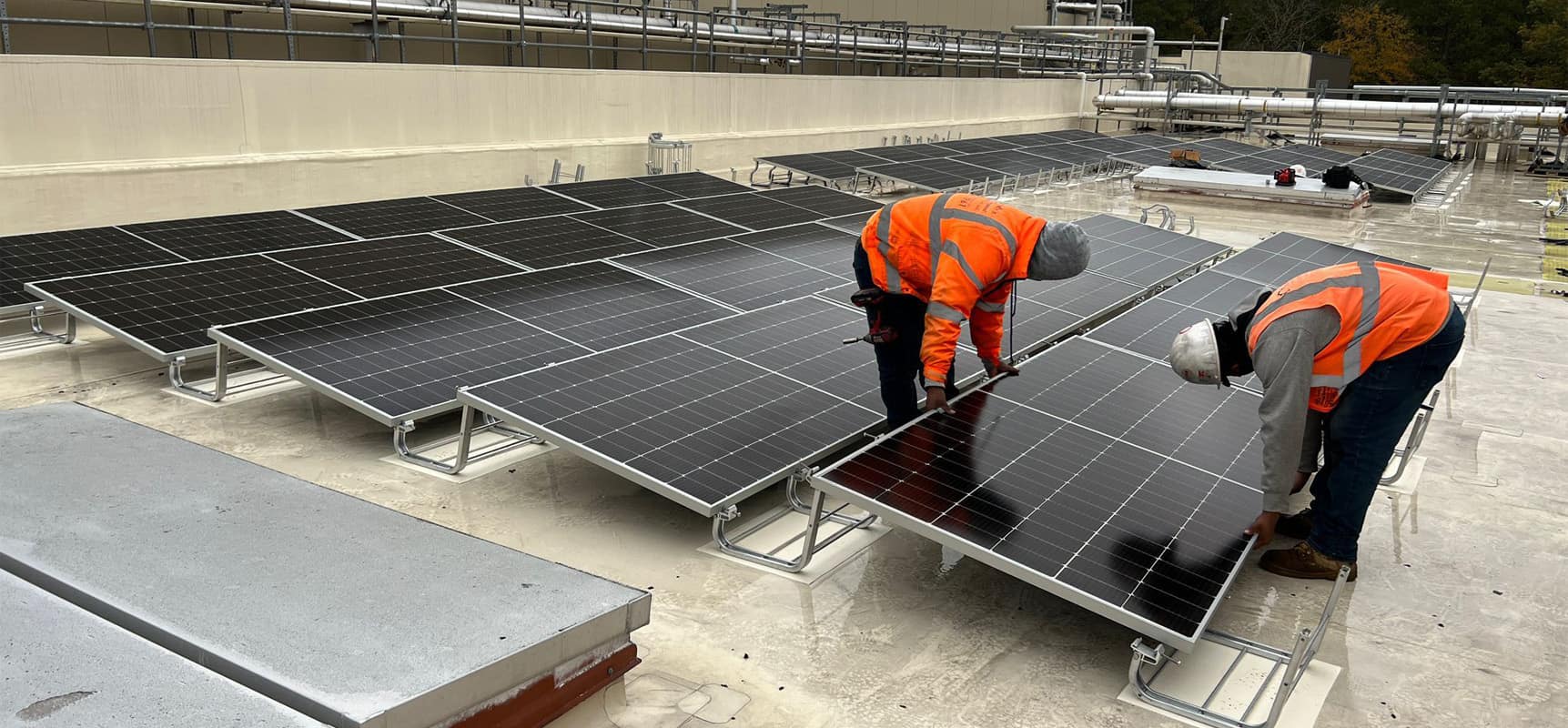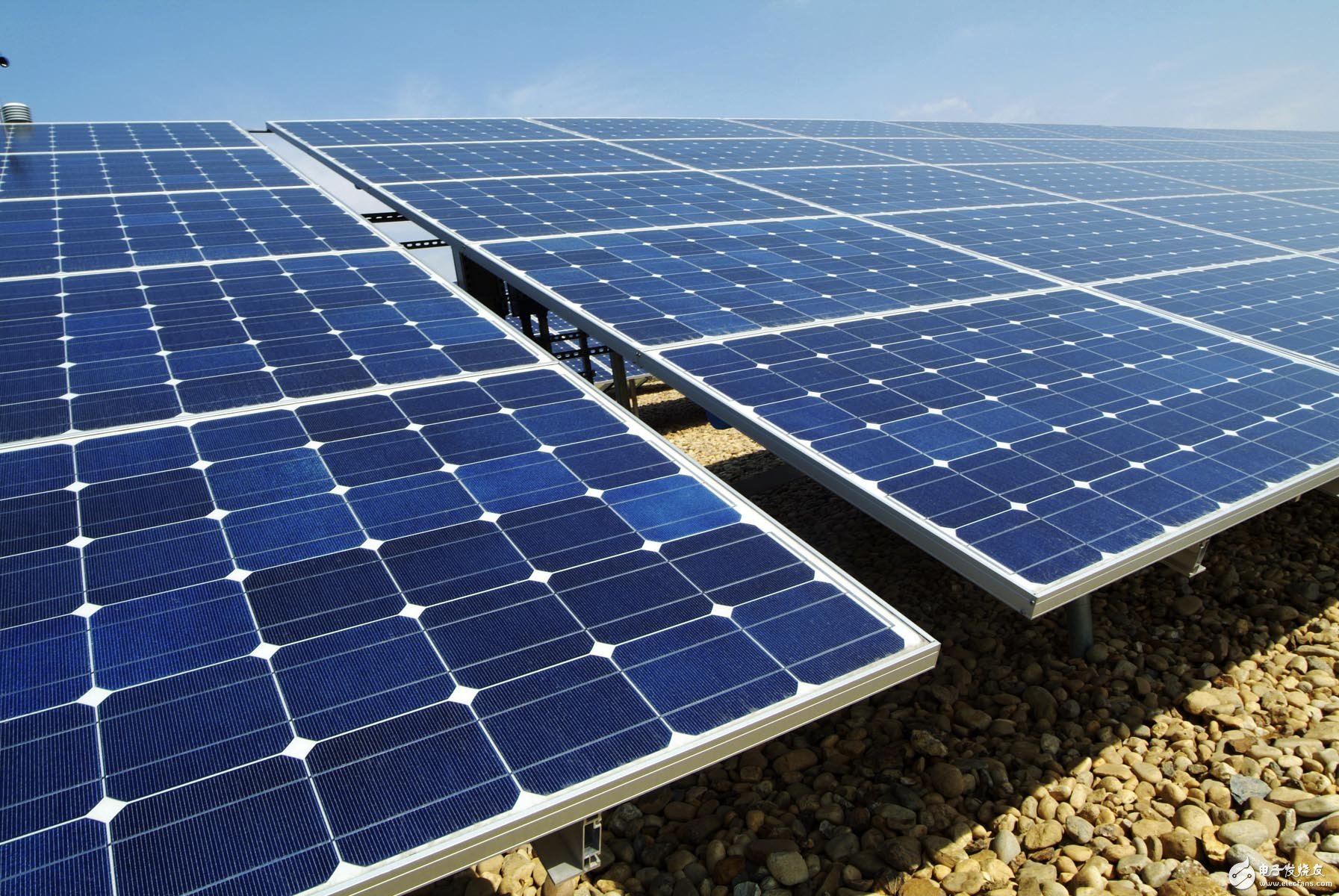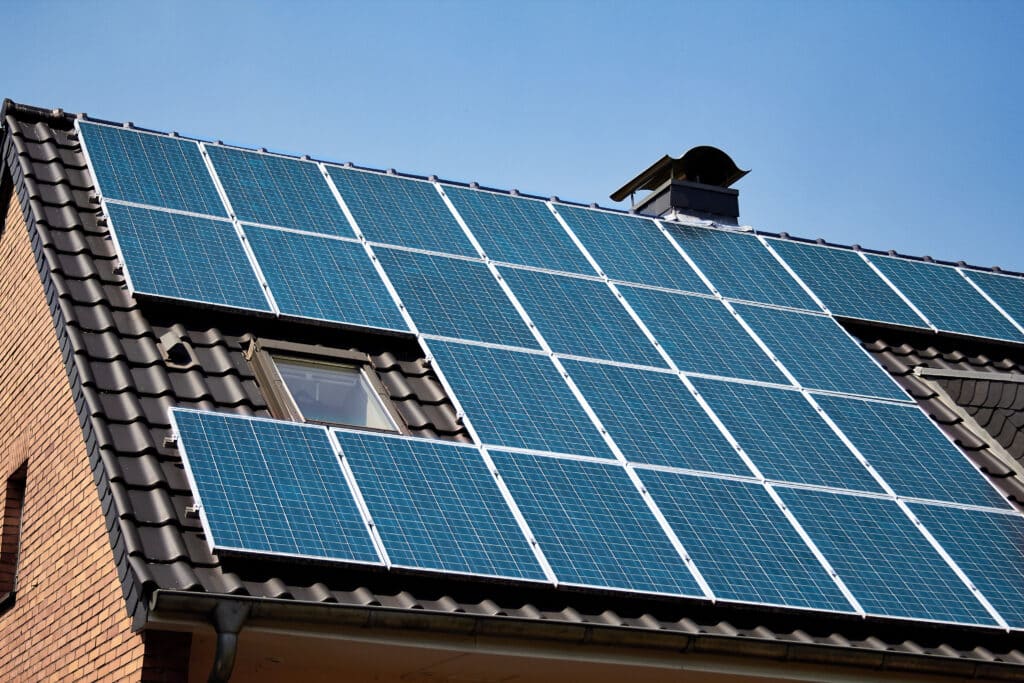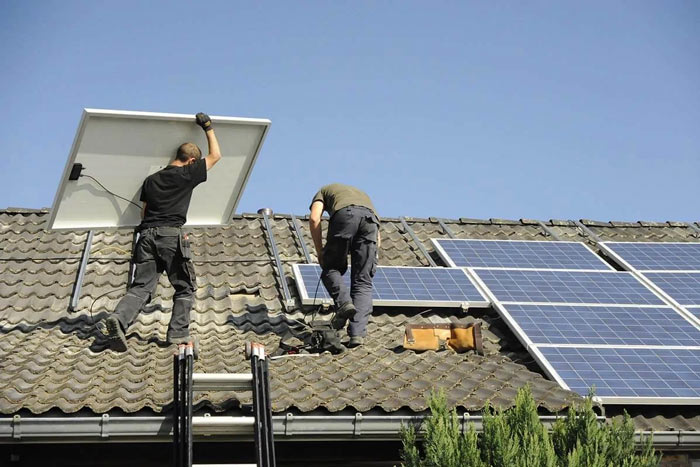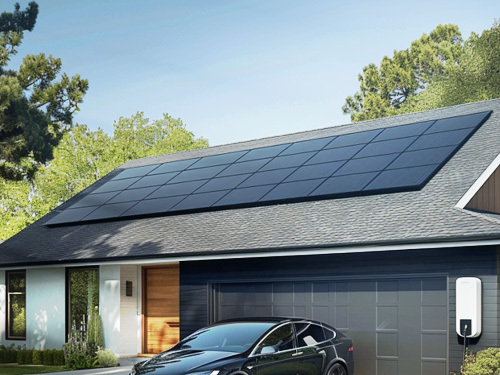The modular solar panels will highly enhance the freedom of power through "plug-and-play" installation and flexible scalability. According to actual needs of power, freely add or remove modules without changing the whole system. In this design, the installation is simpler, the maintenance cost is reduced, and each module operates independently, and a fault will not affect other modules. The module system allows for gradual development without changing the original framework when the demand for power is uncertain. It maximizes the use of space and resources in further ensuring power supply stability and controllability.
Quick Setup
Another significant advantage of the modular solar panel is its easy and quick installation. Traditional photovoltaic systems take some time and professional installation abilities, such as design, engineering calculations, and on-site customization, which increase the time of installation and raise the cost. A modular system of a solar panel is standardized and pre-designed, which shortens the installation process in comparison to its analogs. These are modular units that are partially pre-assembled in the factory, whereas on-site installation requires only the connection, fixation, and wiring of the modules. This greatly reduces the construction period and demand for highly skilled labor.
The installation process of a modular system doesn't require very frequent adjustment. Since every module has undergone initial testing before leaving the factory, installation only requires simple calibration of module connections, thus greatly reducing on-site complexity. The principle behind this feature stands not only for initial installation but also for system extension and maintenance. For example, if the user needs to increase the installed capacity, a number of modules can be directly added to the existing system without redesign or replacement of the whole system architecture so that rapid increase in capacity is possible.
Flexible Expansion
Modularity is a fairly flexible scalability of solar systems. It is tough to expand large-scale PV systems after installation, which conventionally requires the preliminary estimation of future load demand at the designing stage. A modular solar system could allow users to gradually add or remove PV modules according to actual load demand in order to adjust the power demand. This feature is especially important for applications with variable loads in small businesses and commercial sites. In the case of business expansion or the increased demand for production, users can simply add modules without reconstructing the system to avoid repeated investment and resource waste.
The scalability of modular systems is also particularly well-suited to residential users. During initial installation, residential users can install only the modules needed for basic power demands. When family members increase or new electrical equipment is put in, PV modules can be added to adapt to changing load demands. Such a gradual expansion method reduces the pressure of one-time investment and allows users to install incrementally according to the actual circumstance and financial budget.
The flexibility of modular systems is reflected in capacity configuration. Modular systems can also be configured to adjust according to seasonal power demand or daytime peak and valley loads. Users can shut some modules down or reduce them during summer when sunlight is plentiful, so the power will not be wasted; then, they use all the modules during winter or at periods of peak load demands to maintain adequate power supply. It can also be inferred from this that the design for demand-based adjustment not only enhances efficiency in power utilization but also extends the life of PV modules.
Reduced Costs
Modular solar systems hold great economic advantages. The standardized production model of modularization can sharply reduce the production cost. Because the modular design is of high standardization and repeatability, PV component manufacturers are able to produce modules on a large scale, which reduces production costs. Such a mass production model makes the unit production cost of modular systems much lower than that of traditional customized PV systems, offering users a more cost-effective option.
Installation cost is also reduced with modular systems. These conventional solar systems require many parties, including electrical engineers and designers, in installing them, hence very expensive. However, the installations of modular systems are almost "plug-and-play," requiring less reliance on skilled labor, thus reducing laboring costs. For cost-sensitive applications, like industrial and commercial settings, this installation advantage of modular systems is very telling.
It also runs very well in maintenance cost. Traditional systems require periodic checks; if one part gets damaged, then at times the whole system has to be grounded for maintenance. While modular systems allow users to work the modules independently, thereby replacing or repairing faulty modules without influencing the normal working of other modules. It is this characteristic of "localized maintenance" that greatly reduces maintenance costs and avoids power interruptions due to maintenance. Besides, modular systems are relatively simple to repair; even non-professionals can easily perform the basic inspection and maintenance of modules.
Regarding financial flexibility, the modular solar system can enable user options for investing on-demand. While most traditional solar systems require high upfront investments, in a modular system, the user can expand and add modules staged by needs of power and budget condition. The "on-demand purchase" model reduces financial pressure caused by up-front investment and therefore makes solar investment more flexible and economic.
Customizable Layout
The modular design of solar panels gives enough flexibility to the users to plan layout per on-site conditions. Traditional PV systems usually require large continuous flat surfaces, and their design often cannot adapt when space is limited or the terrain is not flat. Solar modular systems are more suitable for complex installation environments due to the structural modular units. Whether a roof, a balcony, a yard, or any other small spaces, users can flexibly arrange them according to site condition, even bypassing obstacles to make more effective use of the space.
Modular solar systems installed on rooftops are able to adapt to the complicated structures of the roofs-smoothly bypassing obstacles like ventilation pipes or chimneys. Conventional PV systems basically need installation on flat surfaces; once facing any obstacle, it's difficult to seamlessly interlink them. Besides, modular systems can customize the configuration of every panel to meet the angle and direction of sunlight for the best photoelectric transformation efficiency. That would enable the modular systems to keep their power output high even when utilizing irregular spaces that are inaccessible to traditional systems.
For the ground stations, the advantage of modular solar systems also comes into prominence. For areas with undulating terrain-like mountains and wilderness, a modular system flexibly arranges according to the characteristics of the terrain. By this flexible layout, the utilization efficiency of the solar resources can be promoted, and the dependency on infrastructure can be reduced. Eventually, it saves the cost required to modify the terrain.
Efficient Energy Use
It is designed to increase energy utilization efficiency for modular solar systems. Compared with traditional ones, a modular solar system would be way better in light resource utilization and power output. Traditional solar systems are usually designed according to series or parallel circuit configuration, where, if one component gets shaded or contaminated, the output efficiency of the whole system may get impacted, causing fluctuation in energy utilization. Because each module unit in a modular system works independently, the malfunction or shading of any of the modules does not affect the working of other modules. This "distributed redundancy" kind of design ensures relatively stable output under unfavorable conditions.
The efficiency in energy usage of modular systems is reflected in their automatic load distribution. This makes the system automatically adjust the working status of each module according to the load: it can turn on as many modules as possible during peak power demand, reducing working modules during low load to achieve on-demand power supply. Such adaptive energy management effectively reduces energy waste in situations that often happen in the field. In particular, for loads whose power demand frequently changes, modular solar systems can intelligently distribute the loads to further enhance the overall efficiency of power generation.
The temperature control is part of the energy efficiency management of modular systems. While the temperature rises, the working efficiency of the solar panel decreases. The good ventilation and heat dissipation independent module structure from each panel in modular design effectively avoids temperature accumulation from affecting the system efficiency. Such cooling optimization not only prolongs the life of modules but also increases the energy conversion efficiency of the system.
Minimal Upkeep
Another great advantage of modular solar system design is the reduction of maintenance costs. Conventional solar systems are relatively complex to maintain; they usually require professional technicians who can inspect and tune the system. Modular systems, due to the relative independence of module units, make maintenance more intuitive and simple. For example, in the event of a malfunction of a module, users only need to remove and inspect or replace that module without affecting normal operation of other modules. This modular maintenance mode greatly reduces the need for full system shutdown, hence improvement in system reliability and maintainability.
The modular systems are more convenient for cleaning and protection. Because every module is set independently, users can clean them one by one without needing any unified cleaning method, as with some traditional systems. The materials used in modular systems are usually durable, and their corrosion and waterproof qualities are very good; this avoids frequent maintenance. This is particularly important for reducing long-term maintenance costs because the modular system reduces dependence on professional maintenance resources and enables users to conduct routine cleaning tasks with ease.
The fault-tolerance capabilities are also more pronounced in modular systems. A fault in just one module does not affect the normal working of the whole system; the user simply has to replace the defective module. In this way, the "fault isolation" feature of modular design helps in enhancing the overall stability of the system. Thus, this flexible maintenance approach is quite suitable for critical load applications like medical, data centers, and so on, which always require constant power supply.
Reliable Backup
The backup power ability is very important for some critical scenarios, and the solution can also be provided by modular solar systems. Because a modular system can realize distributed power supply through the independent operation of each module, any module malfunction will not affect the normal operation of other modules; this characteristic greatly improves the redundancy of the system for continuity of power supply. In some other cases, such as data centers, medical establishments, or communication stations that cannot afford any halt in power supply, modular systems are able to provide multilevel security with distributed redundancy designs to respond to sudden power failures.
In extreme weather conditions and other emergencies, for instance, natural disasters, modular solar systems can also act as backup power in ensuring essential power supply. Unlike traditional power systems, which are highly dependent on the grid and the immediate interruption when it is disrupted, modular solar systems can feed critical loads with stored solar energy to continue operating essential equipment during the power outage. Such emergency power backup increases the system's safety and provides reliable power support in post-disaster recovery work.
The modular systems are reflecting this reliable backup function with their flexible load management. The users can allocate the critical loads to the high-priority module power lines for guaranteed feeding of important equipment during periods of power shortages. This improves the reliability of supply and hence makes better use of the limited power resources in emergencies.

